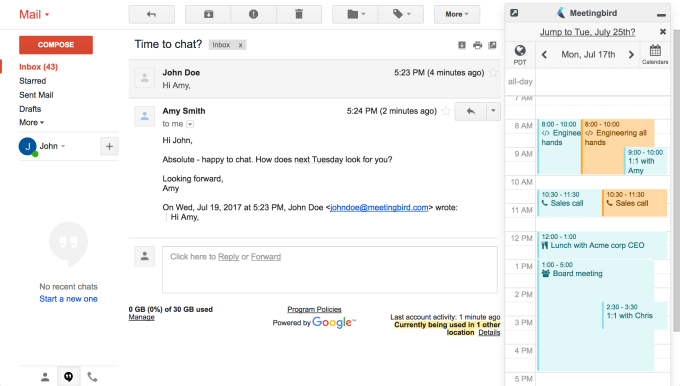All 50 startups from Y Combinators Summer 2017 Demo Day 1
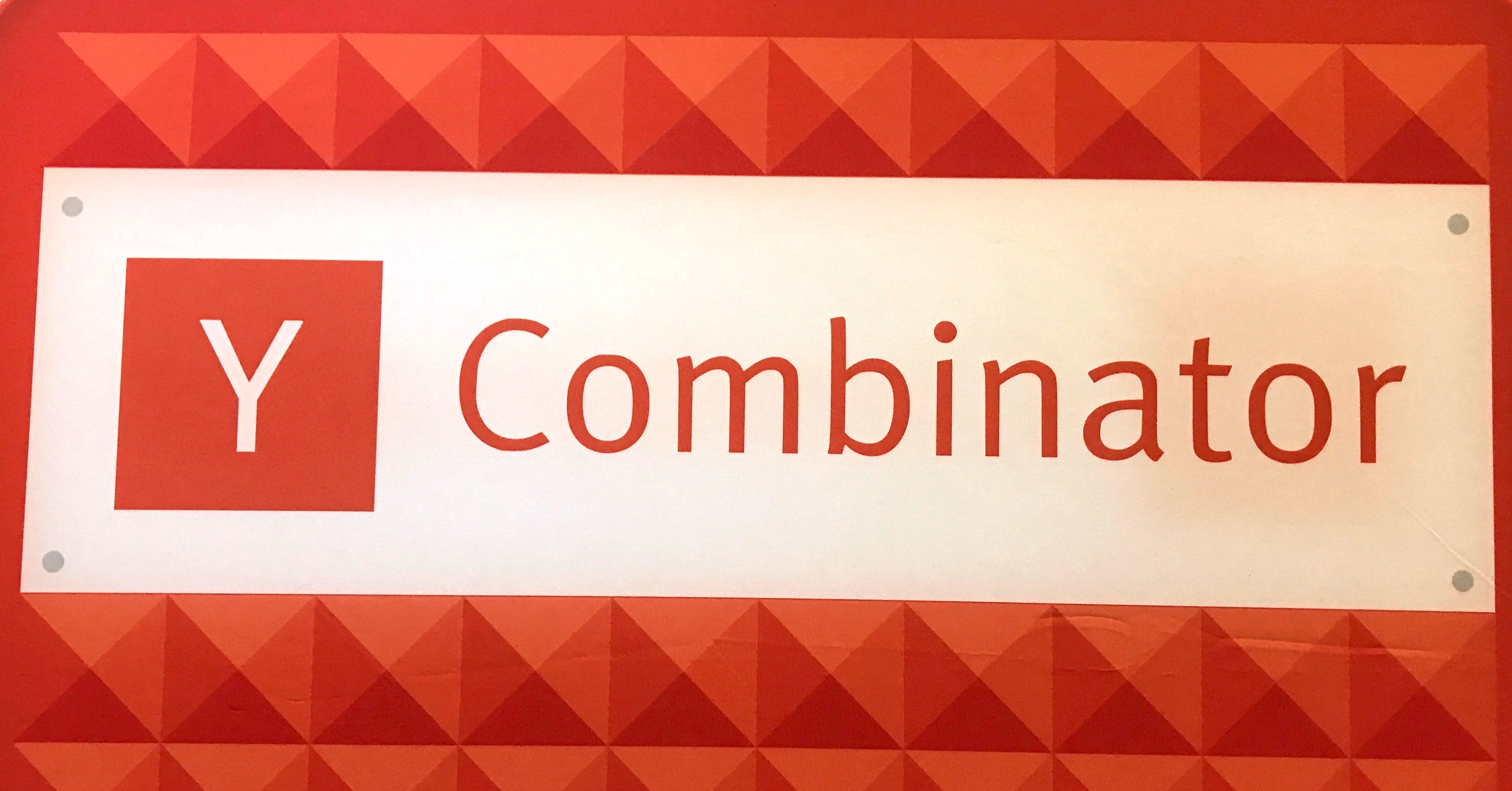
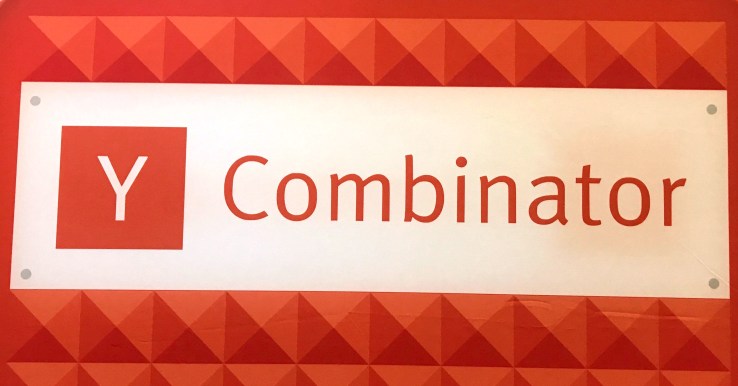
Biotech and artificial intelligence have emerged as the top startup trends at Y Combinator‘s 25th Demo Day. The 124 companies presenting at the entrepreneur school’s twice-yearly graduation event compose YC’s largest batch from its 12.5 years running.
YC partner Michael Seibel kicked off the event by reiterating the accelerator’s commitment to advancing diversity in Silicon Valley. In this class, 12 percent of the founders are female and 9.5 percent are black or latinx.
While those percentages have been pretty stable over the years, YC shines in its inclusion of international startups. In part thanks to outreach via its scalable online Startup School and global events, with 28 percent of this batch’s startups based internationally.
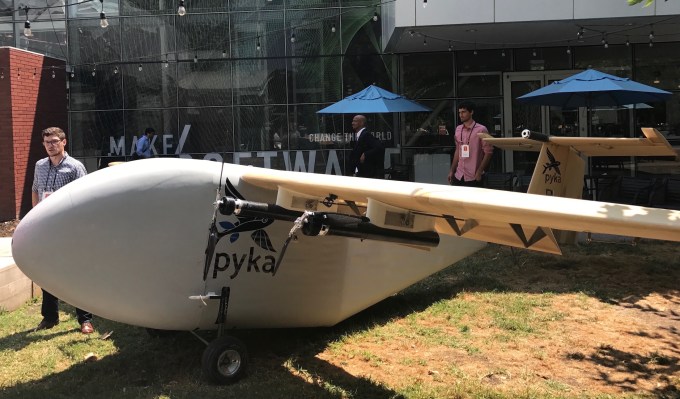
Pyka shows off its self-flying personal plane outside Y Combinator Demo Day at the Computer History Museum in Mountain View, CA
Past YC hits include Airbnb, Dropbox, and Stripe, plus newer unicorns like Twitch, Instacart, and Coinbase. Investors from across Silicon Valley and the world packed Mountain View’s Computer History Museum to look for the next big thing.
Here’s a look at every company that presented on the record at Demo Day 1 of 2. Check out our picks of the 7 best of today’s startups, plus come back for the write-ups of all tomorrow’s companies and the highlights.
—
Zendar – High definition radar that allows self-driving vehicles to see in all weather conditions
Zendar develops high-definition radar for autonomous vehicles. Today, autonomous vehicles rely on two main technologies: Lidar and traditional radar. Lidar can see in high definition, but does poorly in bad weather, while radar is great in bad weather conditions, but can’t see in high resolution. Zendar seeks to provide high-res imagining for self-driving cars in bad weather, allowing all-weather autonomy. In the next three years, Zendar says there will be 10 million autonomous vehicles made, and it’s hoping to be used by as many as possible.

Image via Sombre Lidar
—
Meetingbird – Team-wide meeting scheduling optimization
Having scattered meetings throughout the day destroys productivity. But it’s tough to coordinate meetings by yourself, let alone with the rest of your team’s schedule in mind. Meetingbird is a smart calendar startup that makes it simple to plan a meeting, overlays schedules to find times that work for everyone, and optimizes everything to condense meetings so everyone can get back to work. Meetingbird is now signing up paid enterprise customers for its premium service, with 53 percent week-over-week growth and inherent virality. While competitors are trying to create AI assistants that try to handle meeting communication for you, Meetingbird just gets things scheduled as fast as possible.
Read more about Meetingbird on TechCrunch.
Thematic – Text analysis for surveys and reviews
Getting people to type all the things they love or hate about your product through reviews and surveys can be a great source of quality feedback but distilling massive walls of text to get insights can be a nightmare. Thematic is devoted to analyzing unstructured sources to give customers more actionable steps to increasing customer satisfaction. The company has already analyzed millions of data sources since its launch earlier this year, and they’re delivering insights to partners like Vodafone and Stripe.
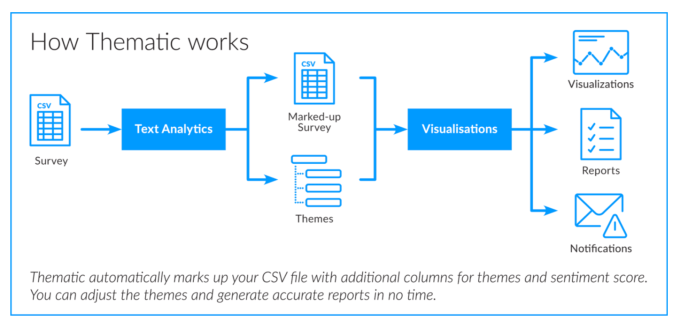
—
PullRequest – A marketplace for code review
Pull Request is a marketplace pairing corporate code with freelance code reviewers looking for a side hustle. The team is recruiting reviewers that have experience from top tech companies like Amazon, Facebook and Dropbox. With this pedigree, PullRequest has managed to draw interest from 450 teams. Though only a portion of these are actually using the service, PullRequest touts a $136,000 annualized revenue run rate. Together, startups and Fortune 500 companies spend an estimated $40 billion on code reviews. The secret sauce of PullRequest lies in automation techniques that allow the startup to do reviews faster and more accurately.
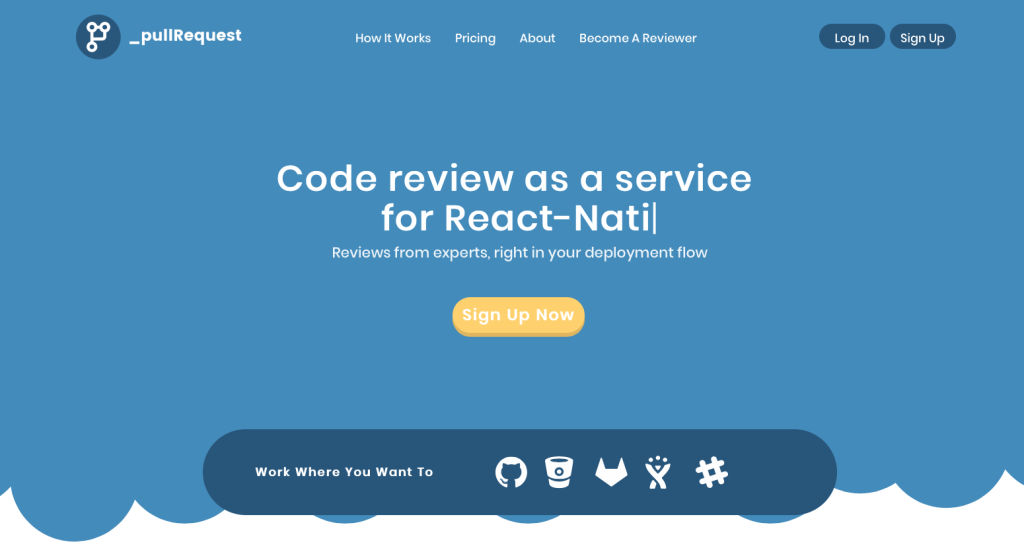
—
Helium Healthcare – Electronic Medical Records For Africa
Paper medical records can cost lives. Helium is making them a thing of the past with its “rugged” electronic medical records system for Africa. Designed for minimal training and offline access from any device, Helium can handle patient records for doctor’s visits, prescriptions, and billing. Helium offers both pay-as-you-go billing and traditional enterprise subscriptions for larger hospitals. With over 20 facilities and 500 medical professionals on board, Helium hopes to improve healthcare across Africa by making EMR easy to adopt.
 —
—
Darmiyan– Early detection of Alzheimer’s disease up to 15 years before symptoms
Darmiyan reduces the cost and time it takes to test for early-onset Alzheimer’s disease. Anyone over the age of 45 should be tested, and the company has already tested 3,000 patients. Even before getting submitted to the FDA, the company has signed up a $1 million contract. Currently there are 26 million Americans who should be tested, and each test costs $500, which means a potential $13 billion market for the company.

—
Roofr – Satelite-powered roofing estimates
Roofr uses satellite imagery to let consumers easily grab a quote on the cost of their roof and then get connected with roofers to tackle repairs. Property owners can easily set their address, trace an image of their home’s roof on a satellite map and within 30 seconds they get an estimate and can get connected with a roofing installer within 72 hours. The startup takes a 10 percent fee for the process and says they’re saving their customers save about 20 percent.

—
CashFree – Payments automation for the Indian market
Payments products are a dime a dozen these days, but CashFree is hoping its intention and focus on the Indian market will set it apart. CashFree is a payment gateway that automates both inbound and outbound ACH payments. The founder of CashFree explains that this could enable instant transactions on an individual basis — i.e. an Uber-esque service could pay drivers directly after their trips. The company is currently processing $3.5 million in payments and earning an attractive 40 basis points on each transaction.

—
Skyways – VTOL drones
Skyways is building vertical take-off and landing (VTOL) drones to be used by the military for transporting things without putting people in danger. Since the military currently operates in places with little infrastructure, Skyways can provide a way to deliver goods without putting people in danger. Their drones are fully autonomous and have a payload capability of 45 pounds. While they’re starting with military drones, the company wants to eventually use that business to fund a consumer vehicle in the long-term.
—
Mystro – Helping on-demand drivers earn more
Juggling different apps like Uber and Lyft can distract drivers and cause them to miss the most lucrative rides. Mystro’s service auto-accepts the most profitable fares for a driver so they can focus on the dollars and the road. And since it enhances driver satisfaction, it’s chipping away at Uber and Lyft’s huge driver retention problem that sees 96 percent quit their first year. That’s why the ride share services don’t block Mystro, and it’s expanding beyond Lyft and Uber. The $12/month Mystro subscription is growing 25 percent week-over-week, and the service handles 100,000 rides a week. With 20 million on-demand drivers worldwide, Mystro is chasing a $3 billion a year opportunity. While there’s a risk that the ride share platforms will try to add similar functionality, none will work cross-platform, leaving a big opportunity for Mystro.
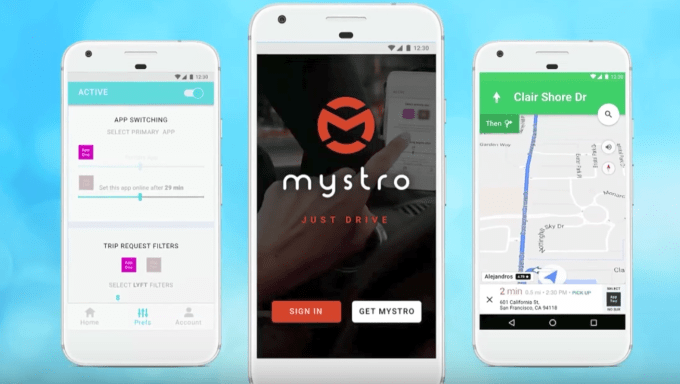
Read more about Mystro on TechCrunch.
—
10 By 10 – Recruitment agency hiring marketplace
Hiring at big tech companies is a pretty intensive and expensive process for recruiters, 10by10 is building a marketplace to more quickly match qualified candidates with companies by pooling data across recruitment agencies. The startup takes what a lot of agencies are already doing on an informal level, but brings it into the startup’s platform to get stuff done “ten times easier and ten times faster.” Things are just getting started at 10by10 which just launched last month, the company is already $60k in booked revenue over the past month. The startup splits the fee with the recruiter 50/50.
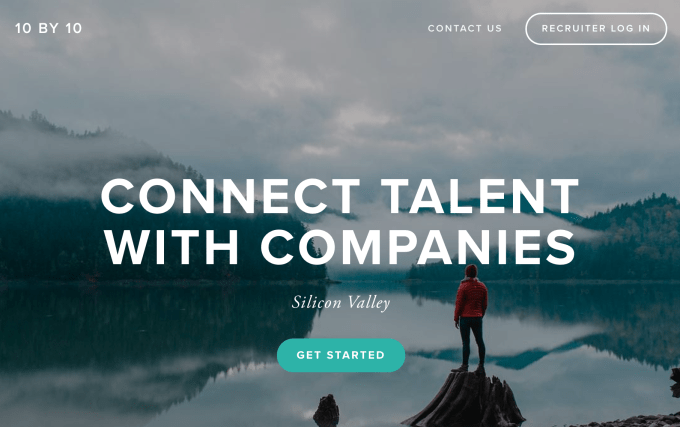
—
Honeydue – Financial planning for couples
Honeydue is a collaboration tool for couples to manage their finances together. We’ve all heard that the number one point of contention for couples is money. Eugene Park, the startup’s founder, aims to reduce this friction with transparency. The app currently has about 24,000 users monitoring $68 million in cash balances. This is music to the ears of anyone looking to target financial products to the millennial couples demographic. Park proudly noted a 16x click through rate for financial products offered up via Honeydue.

Read more about Honeydue on TechCrunch
—
D-ID – Protect your identity from face recognition technologies.
D-ID has developed an AI to protect your photo from facial recognition. With just your photo, hackers can steal your identity and hack your devices. But unlike passwords, you can’t change your face. D-ID has created software that processes your photo and creates a protected image that looks similar to the naked eye. The company is targeting customers and security agencies who store user photos, and has two $1 million letters of intent signed.
—
Life Bot – One voice app for everything
It’s tough to remember the names and scripts of all the different voice apps when you don’t have icons to browse like on mobile. That’s why Life Bot says the average retention of an Amazon Alexa app is 3 percent, while it has 52 percent, and plans to launch on Google Home and Microsoft Cortana. Life Bot’s app can give you personalized news, manage your calendar, or find your phone. And since it knows your phone number, it can send you reminders even when you’re not home. Eventually it wants to work in your car and on every other device. While it may have to contend with native omni-apps from voice platforms like Amazon and Google, the voice bot space is exploding and there are few name brands.
Read more about Life Bot on TechCrunch

—
Modular Science – Outdoor robot farming.
Elon Musk may be concerned about robots taking over the world, but Modular Science just wants robots to farm our vegetables. The startup, which currently has robots out in the field (!) in Petaluma, CA, is aiming to automate 99 percent of the processes involved in vegetable farming within the next six months with their specialized farming bots. Modular Science is looking to charge $2,000 per acre, which they say is half of what farms are currently paying to for human labor.

—
Audm – Subscription audio content
Unafraid of Apple, Spotify and other incumbents, Audm is trying to find white space in monetizing spoken word audio content. By taking a revenue sharing approach, Audm has managed to get Buzzfeed, The Atlantic, Wired, Esquire and more on board. About 1,150 subscribers are paying $7 per month to access that audio content. The startup sees itself as the disruptor of Sirius XM, beginning the long journey of building out a library of podcasts, news and talk radio.

Read more about Audm on TechCrunch
—
GameLynx – Next generation mobile eSport
GameLynx wants to build a competitive eSport game to bring hardcore gaming to mobile. The company believes that success will be defined not just by creating a new type of game, but creating a better user experience. Mobile devices are now powerful enough to support the types of games hardcore gamers love to play, so now the company wants to bring eSports gaming to that platform. In doing so, it hopes to build eSports games that aren’t just fun to watch for gamers, but for everyone. GameLynx will launch its first game in its first test market in the next six months, but is already backed by one of the largest game companies in the world.
—
Gopher – An app platform atop email
We all hate email, but still spend most of our day there. Gopher wants to make that time more productive by letting any developer build apps for your inbox. For example, you can forward it emails of data for entry into Salesforce, or collaboration plans to schedule a meeting. Its first extension for sending follow-up emails has earned it 13,00 monthly users, and 300 devs have signed up to build on the platform. Rather than forcing you to waste your hours hopping back and forth between email and other apps, Gopher will help you get things done all in one place.
70 Million Jobs – Job recruitment platform for America’s formerly incarcerated
There are 70 million Americans with a criminal record in this country and when it comes to finding employment, things can get complicated. 70 Million Jobs is a for-profit recruitment platform that connects companies with applicants. Founder Richard Bronson knows some of the challenges facing the recently incarcerated, as he spent two years in a federal prison after being convicted of securities fraud in 2002. Since then he has joined with Defy Ventures to help formerly incarcerated people get a second chance through entrepreneurship. “What we do is use advanced insights to connect ignored talent with jobs that companies can’t fill,” Bronson told the crowd of investors. The startup is starting its efforts with job recruitment, working with companies like Uber, but Bronson hopes the startup becomes a hub for providing services to those with a criminal record.

—
May Mobility – Autonomous vehicles for urban environments
May Mobility is the latest of a ballooning number of startups tackling the autonomous vehicle space. The team, formerly University of Michigan roboticist, is pretty deep in R&D. Rather than beat competitors purely on technology, May just wants to be first to market. And with a paid partnership lined up in the City of Detroit, that actually just might happen. The vision is one of reduced variables — the vehicles would operate in more predictable environments like central business districts and residential communities. And Detroit isn’t alone, negotiations are progressing with four cities to get autonomy on the road to make money sooner rather than later.
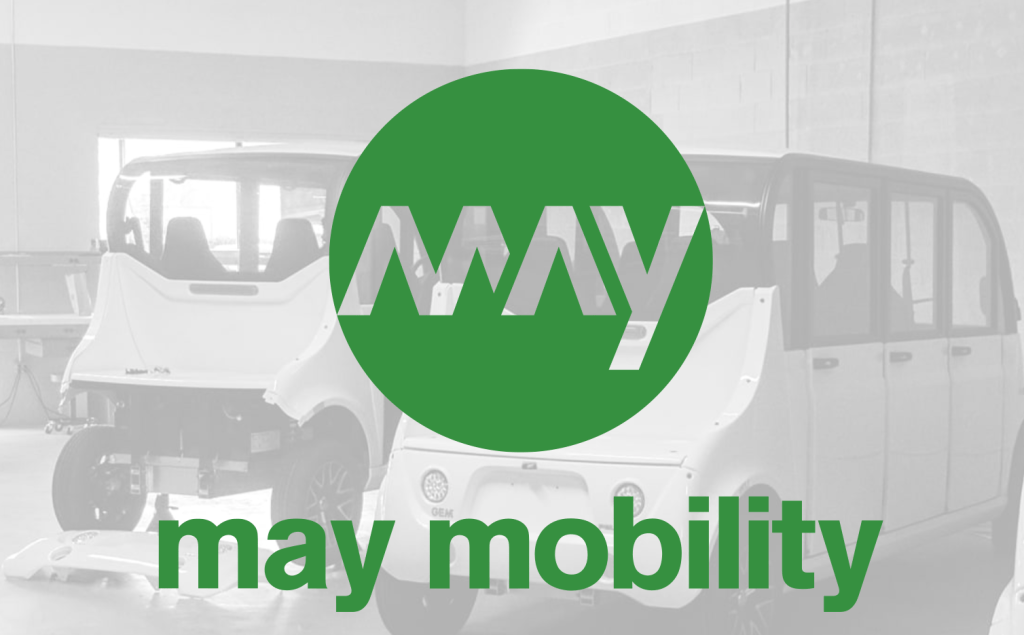
Read more about May Mobility on TechCrunch.
—
Flock – Wireless security systems for neighborhoods
Flock builds wireless cameras that can be used to protect neighborhoods. The company has developed an outdoor camera that can track cars and record license plates. It can provide data to local police officers when crimes occur, but it can also proactively notify them when a stolen vehicle enters a neighborhood. The company has already solved its first crime and is being used by multiple neighborhoods, but believes it is targeting a $1.5 billion market opportunity in protecting local municipalities.
—
Indivio – Video ad A/B testing
Advertisers know that the best performing ads come from creating tons of variants and whittling them down to what works. That’s easy with text and images, but much harder with video. Indivio takes the work out of video ad optimization. It can use motion graphics instead of traditionally filmed video to make different versions of an ad for different locations and target customers. Indivio reduced Instacart’s cost per acquisition by 25 percent, and now it wants to optimize all the video ads on Facebook and Instagram. As ad spend shifts from television to social, plenty of brands will need help, and Indivio will charge them 5 percent to 10 percent to make sure their marketing resonates with our fast-moving feeds.

—
Relationship Hero – Relationship help for the digital age
If there’s anything Silicon Valley hasn’t proven itself adept at helping with, it may be navigating the complexities of human relationships. Thankfully it’s not AI-based and unlike so many of the gimmicky chat bots or Dear Abby-style products, Relationship Hero is looking to help you solve relationship issues by connecting users with live relationship experts over the phone or through online chat. Through what the startup calls “tactical step-by-step plans,” the startups wants to help you through issues with family members, coworkers and significant others. 30 million people go to therapy, Relationship Hero says they want to create a “lighter weight” solution. They won’t just offer you random truisms either, in some cases the experts will tell you what to say in a text and when to send it. The average client spends over $100 inside the app as they get live expert help from relationship coaches.

—
ShiftDoc – A marketplace for healthcare professionals
ShiftDoc is building a better way to fill shifts for private healthcare practices. The startup is undercutting staffing agencies and offering a better user experience than job boards with its marketplace. The nice part about addressing the healthcare market is that the take for each shift filled is very high. ShiftDoc says that it’s earning $50 per shift it fills. Of course the hard part is building up initial supply and demand to get to a point where the marketplace will self sustain. To this avail, the team has on-boarded 150 part-time doctors willing to fill shifts at 50 private practices.

—
Dropleaf – Netflix for indie video games
Dropleaf provides a subscription service for independently produced PC games. It’s taking advantage of a growth in the number of indie games — which double each year — and interest from PC gamers. With its $10 per month service, Dropleaf offers more than 50 games to users. In a limited beta, 90 percent its users play games at least twice a week, and it believes it has an addressable market of 120 million PC gamers around the world.
—
Sunu – Sonar bracelet for the blind
The vision-impaired frequently hurt themselves, with one blind person going to the hospital every 5 seconds due to head injury. But their options are limited to a low-tech $30 cane or a pricey $30,000 guide dog. Sunu is a sonar bracelet that vibrates to let the vision-impaired know that they’re approaching an object. Its six-month beta test saw users reduce accidents by 90 percent. Sunu has sold $25,000-worth of its bracelets that ship in October. Now that the product has been built and patented, it’s seeking to sell one to all 10 million blind people in the US. People are willing to pay a premium for safety, so even if cheaper devices emerge, Sunu could win by becoming a trusted brand.
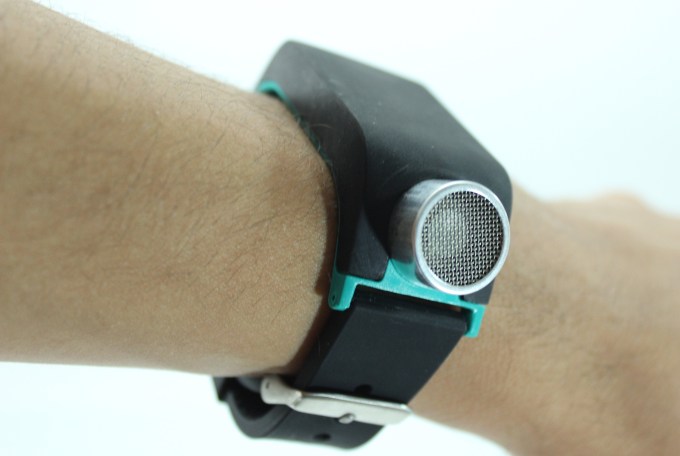
—
Wildfire – An administration-approved Yik Yak for college campuses
Wildfire seems to be a bit of mixture of Yik Yak and Patch, bringing local user-submitted news and administration-sanctioned campus alerts. The app’s initial draw is as a system to send out campus safety warning notification pushes so students are alerted if there’s a robbery or active shooter situation on campus. In the less dire, day-to-day use cases, the app is a “hyperlocal news app” allowing users to share what’s happening on campus whether it’s an extracurricular event or party. Wildfire says it has 23 thousand MAUs across six college campuses and will be available in 50 campuses by the end of the year.

—
OncoBox – Better drug treatment decisions for late-stage cancer patients
When a patient is suffering with late-stage cancer, every treatment decision that is made by an oncologist makes a huge impact on potential survival. There are over 150 cancer drugs on the market today — everyone would love a panacea but the pragmatic problem of today is deciding which patients should be assigned which drugs. OncoBox provides pre-testing to estimate the likelihood that a given drug will improve outcomes for a specific patient. The team is charging $1,000 for its test and it estimates that there are about 500,000 tests done per year. The $500 million market is just a starting point for the startup that promises 2x more effective drug matches over doctors.

—
VergeSense – Facility management powered by AI
VergeSense uses hardware sensors and machine learning techniques to help companies operate buildings more efficiently. For most companies, the cost of real estate is the second largest cost to their business, but VergeSense believes that it can reduce their costs by 10 percent to 15 percent. By installing wireless sensors around a company’s buildings, it can recognize human movement flow and make recommendations to customers to lower costs. Already, VergeSense has two paid pilots with Fortune 500 clients, but believes every big company needs a product like what it’s produced.
—
Pyka – Self-driving personal aircraft
Pyka wants to make “flying cars” a reality with its auto-piloting single-person planes. The company has already built a 400lb plane that flies itself, can take off and land in 90 feet. But since regulators want to see tons of testing before allowing humans aboard, Pyka has developed a placeholder business doing crop dusting in New Zealand. That helps it earn $600 per hour while logging the hours necessary to prepare for the human transportation market. Crop dusting alone is a $1.5 billion business in the US. But with employees from Zee airplanes and Google’s Waymo, Pyka aims to become a first-mover in self-flying personal planes.

—
Fastpad – Job applicant tracking system for India
Fastpad is building hiring software for the Indian market that gets rid of spam and ensures that companies can see quick snapshots of real candidates. Fastpad claims that most job openings in India have thousands of applications and candidates often apply without even reading the descriptions. Because of this, around 70 percent of actual hires end up coming from third-party recruiters. Fastpad is looking to create the dominant recruitment marketplace by cutting through the noise in an Indian hiring marketplace that’s growing 40 percent year-over-year.
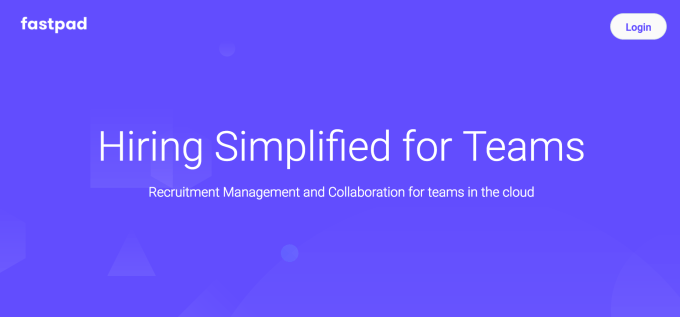
—
Gustav – Marketplace aggregating small staffing agencies
Gustav might not look like a traditional staffing agency, but that hasn’t stopped it from earning money like a traditional staffing agency. The startup works with companies to fill temporary positions. Traditionally this work is done by large staffing agencies, but Gustav is testing its thesis that an aggregation of small staffing agencies outperforms the big legacy players. Uber, Sony, H&M, Vice and others have done work with Gustav to hire about 20 individuals to date. And even as a middleman, using automation to organize the 19,000 small staffing agencies in the U.S., Gustav gets to collect three percent of the salary paid out to contractors. This tends to give each hire about $1,000 in LTV.
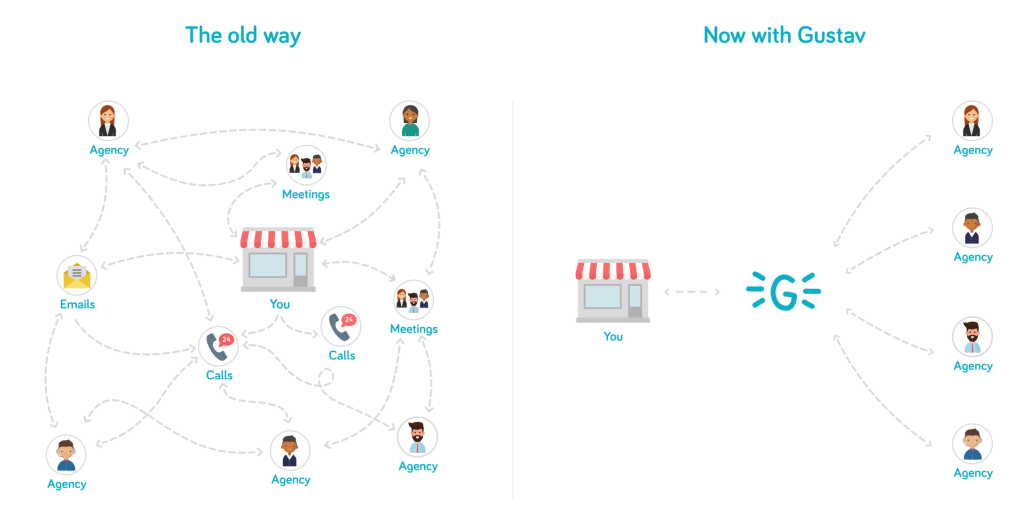
—
Forever Labs – Transplant your stem cells to your older self to combat aging
Forever Labs wants to help users cryogenically freeze their stem cells, allowing them to use those cells to fight their age-related diseases in the future. Stem cells have been shown to help improve the life of mice by 16 percent, but the older you get, the less helpful they get in helping to fight disease. Now, Forever Labs has 20 doctors providing the procedure, but expects to be in every major US market by this time next year. Stem cell banking could be a $56 billion market, the company believes.
Read more about Forever Labs on TechCrunch.

—
Ubiq – Screen-sharing solution for enterprise conference rooms
No matter how amazing technological advances seem to get, telepresence business meetings are still awful. Ubiq is aiming to simplify conference room screen sharing with their cable-free setup that cuts down on confusion and lets businesses focus on the tasks at hand. It’s basically bringing enterprise-grade AirPlay-like streaming tech into the conference room with wireless HDMI output. The startup’s solution has already been deployed at more than 150 companies and has increased revenue 3.5X in the past four months.

—
Airthium – Energy storage using heat pumps
Energy storage is one of those holy grails that everyone knows exists but nobody has been able to come close to capturing. Airthium is chipping off a tiny portion of the huge market with its energy storage that uses heat pumps. It’s addressing the megawatt-scale stationary energy storage market by using heat to store electricity. The team of physicists and experts in fluid dynamics is building small systems without moving parts, a decision that is saving Airthium serious money. Despite the R&D-heavy nature of the business, Airthium has managed to obtain two letters of intent at a value of $4 million per year and a third letter for a smaller $300,000 energy system.

—
UpCodes – Construction legal compliance
UpCodes helps the construction industry navigate compliance. Currently most compliance codes are hidden in physical books and PDFs, which means multimillion dollar mistakes are common in the industry. UpCodes has taken those analog compliance resources and taken them online, growing to 61,000 monthly unique visitors to its site only through SEO. It has a freemium model that it’s using to go after the 18 million professionals who deal with code compliance globally.
Read more about UpCodes on TechCrunch
—
Cambridge Cancer Genomics – Blood test cancer treatment monitoring
It can take six months before a cancer patient’s doctor knows if the chemotherapy regimen they chose is working, yet 2/3s of treatments fail. Cambridge Cancer Genomics has developed a blood test that can detect failed treatments up to many months faster than standard monitoring, so doctors can switch plans sooner when necessary. Founded by 4 PhDs with cancer research experience, CGC is also building AI for personalizing cancer treatment using a data set it says is 4X larger than what’s available to the public, as it absorbs data from each medical facility it signs on.

—
HelpWear – Medical grade heart-monitoring wearables
For the 17 million Americans suffering from acute heart conditions, HelpWear is building a more versatile ECG system that patients can . Existing systems are uncomfortable amalgams of wires and adhesives and can only be worn for 72 hours and have to be taken off before hopping in the shower, something that can be a major inconvenience to those suffering from acute heart conditions. HelpWear’s solution is a much more svelte system of three wearable units akin to fitness trackers which are wireless and can be worn 24/7 and are waterproof. The startup is on track to be FDA-approved in nine months.
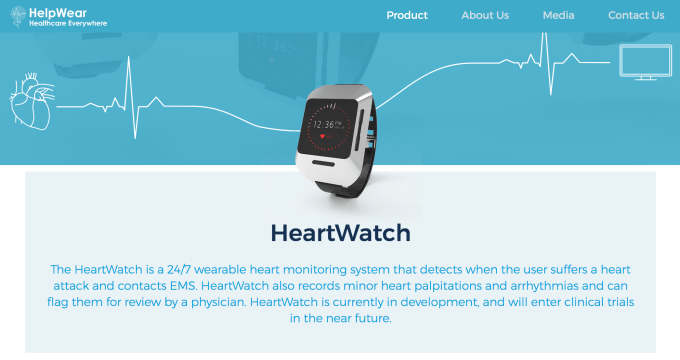
—
Net30 – Getting construction workers paid faster
The construction industry is one of those places where, despite increasing attention from startups, there always seems to be an infinite number of archaic processes that need solving. Net30 is pursuing online invoicing and payments for construction companies. Typically general contractors collect invoices from subcontractors, but this seemingly easy process often involved over 200 pages of complex accounting. The end result is a basically unacceptable 70 day pay delay. With a background in construction project management, Net30 is cutting pay periods down to just 30 days. This case has proven so attractive that the startup is expecting $400,000 in annual revenue.

Read more about Net30 on TechCrunch.
—
Guggy – Transform text messages to personalized funny GIFs.
GIFs are everywhere these days, as the growth in GIF views has increased more than 100x by 2014. With that in mind, Guggy helps users express themselves with personalized GIFs. Using a natural language processing engine that understands slang and emotion, the company can instantly create GIFs that represent their words. Already the company has 1 million active users on its API, but it’s looking to build the messaging app of the future and deliver it direct to consumers.
—
Escher Reality – Augmented reality’s data backend
To augmented the real world, you need data about it. Escher Reality aggregates AR video data from people’s camera phones and pins it to locations so other developers can build better experiences on rop. And while Facebook and Apple have their own AR platforms, Escher works across iOS and Android right inside developers’ apps. It now has 600 devs on its waitlist, 10 letters of intent from potential clients like game studios, and a signed deal to power an AR app for blockbuster robot fighting movie Pacific Rim. If Escher Reality can be the device- and platform-agnostic engine for AR, it could become a gateway to tons of developer spending and consumer time spent.
Read more about Escher Reality on TechCrunch.

—
Carrot Fertility – Fertility benefits for corporate health plans
Carrot Fertility wants to bring fertility benefits to company health plans so that employers cover fertility procedures like IVF or egg-freezing just like they do for vision or dental. Though big tech companies like Apple, Facebook and Google are already offering fertility benefits to employees, other companies that aren’t so flush with cash may not have the ability to be seeking out the best path towards adding this coverage. Carrot Fertility makes it easier for companies to add the service to health plans, helping them keep their list of benefits attractive to potential new hires.

—
Feather – Stylish furniture rental for millennials
It’s 2017 — owning things isn’t cool because owning things is expensive and requires commitment. Feather is rescuing millennials from IKEA purgatory with its furniture rental service. By focusing on style, Feather wants to offer furniture that people actually want. The New York-based startup is making about $275 per month, per order. On an average order size of $2,200, Feather earns $830. And the company manages this without actually owning any of its own furniture. Working alongside a debt capital partner, the startup leases its furniture as a middleman, renting it back to customers at a convenience premium.

Read more about Feather on TechCrunch.
—
Prism IO – Help companies fix churn
Churn kills companies, but Prism IO wants to help kill churn. Most companies try to quantify customer loyalty, because as they scale they can no longer talk to customers the way they used to. To help them, Prism IO talks to cus
Read more: https://techcrunch.com/2017/08/21/y-combinator-summer-2017/
